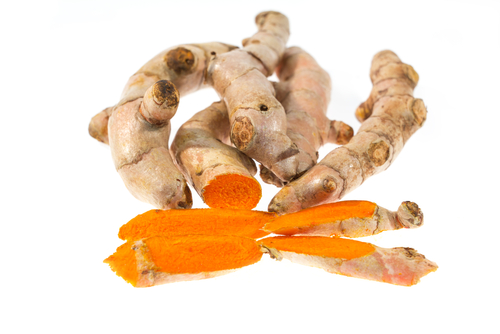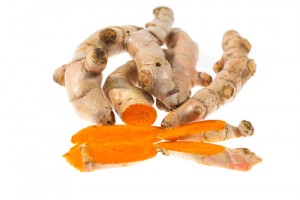Turmeric Compound Found in Some Curries Offers Possible Alzheimer’s Therapy
Written by |

 A new study entitled “Aromatic-turmerone induces neural stem cell proliferation in vitro and in vivo” published in September issue of Stem Cell Research & Therapy suggests Curcuma long active element Aromatic turmerone induces neural stem cells’ (NSCs) proliferation and differentiation in vivo, a key event for overcoming neurodegenerative diseases, such as Alzheimer’s.
A new study entitled “Aromatic-turmerone induces neural stem cell proliferation in vitro and in vivo” published in September issue of Stem Cell Research & Therapy suggests Curcuma long active element Aromatic turmerone induces neural stem cells’ (NSCs) proliferation and differentiation in vivo, a key event for overcoming neurodegenerative diseases, such as Alzheimer’s.
Curcuma longa, an herb from which is extracted the yellow powder curcuma, has two major bioactive elements — curcumin and aromatic turmerone. While previous studies reported curcumin anti-inflammatory and neuro protective properties, if the same is applied to aromatic turmerone still lacks experimental evidence.
In neurodegenerative diseases, such as Alzheimer’s, endogenous neural stem cells (NSCs) play a key role — they have the potential to regenerate, therefore replacing lost or damaged neural cells. Pharmacological induced activation of NSCs increases self-repair and functional recovery in adult brains of stroke or neurodegeneration.
NSCs and microglia (non-neuronal cells important for homeostasis and protection of neurons) interaction ultimately regulates their functions in the brain. Notably, aromatic turmerone was recently suggested to inhibit microglia activation, a hallmark of neurodegeneration. Thus, because of their regulatory loop, the authors proposed to investigate, both in vitro and in vivo, the role of aromatic turmerone on NSCs pool.
[adrotate group=”3″]
The team of researchers from Institute of Neuroscience and Medicine in Jülich, Germany showed that both primary fetal rat NSCs and naïve rats’ brains exhibited a proliferation in NSCs upon treatment with aromatic turmerone. Furthermore, the treatment promoted neuronal differentiation of NSCs in vitro and in vivo, the latter demonstrated with noninvasive positron emission tomography (PET) imaging of a radiotracer. In vivo, the authors observed that Ar-turmerone mobilized NSCs from its niche, the sub ventricular zone (SVZ) and hippocampus.
Adele Rueger, the study’s lead author, commented, “While several substances have been described to promote stem cell proliferation in the brain, fewer drugs additionally promote the differentiation of stem cells into neurons, which constitutes a major goal in regenerative medicine. Our findings on aromatic turmerone take us one step closer to achieving this goal.”





